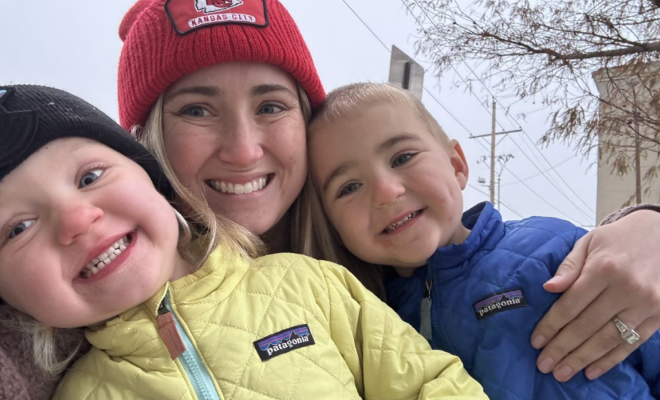Having CF in this day and age is a strange feeling to describe. Yes, I still live with a deadly and progressive disease, which means I have to take extra care of my body — exercising consistently, doing daily breathing treatments, taking handfuls of pills every day, regularly monitoring my blood sugar, giving myself insulin shots, and being more careful about avoiding germs. I crave connection with other CFers, but I always have to prepare for the reality that the person on the other side may not be able to benefit from CFTR modulators like I do.
Living with CF while on a modulator is quite literally life-altering. I used to rely on a feeding tube for nutrition, have frequent hospital stays, and wonder how someone could want to be my college roommate. I’d even wonder how anyone would marry someone who’s hooked up to a feeding pump at night and lives with a shorter life expectancy than most. Now, I can go days where I almost forget I was born with what used to be a more fatal disease.
When my mom was told that her daughter was born with cystic fibrosis — a disease that, according to Google, was incurable and offered no promise of how long her child would live — she never could have imagined this day. Her other daughter, my sister Claire, also has CF and is now able to run cross-country thanks to Trikafta. Meanwhile, I'm 17 years old and preparing for the college admissions process (running’s not my thing).
Right now, I’m not what most people picture when they think of someone with CF. I look healthy on the outside to my classmates and friends. But what they don’t see are the treatments, the medications, the nutrition plans, and the exercise routines that are keeping my body going. Without Trikafta, I can't even imagine what my future would look like. I wouldn’t be able to occasionally skip breathing treatments, run around with my friends, or join beach basketball pickup games with my sister and cousin.
The thought of some people not being eligible for modulators haunts me. It’s a reality I’ve been lucky to avoid, but others haven’t.
That’s why I know my future has to include fighting for those still left behind — for whom Trikafta is not an answer. It’s not fair. And we owe it to them to keep going. We can’t stop now.
That’s why I want to be part of the solution. This summer, I’m doing research at the University of Pennsylvania on how certain compounds affect calcium signaling in CF-affected cells — research that, in some small way, might contribute to the next breakthrough. One day, I want to work at Vertex Pharmaceuticals — the company who developed CFTR modulators — not just as someone who owes her health to them, but as someone ready to give back. I don’t want just to witness progress. I want to help build it.
There is still so much more to be done. The research is shifting from a focus on what was once considered a pediatric disease to one that affects a now growing adult population. I want to help ensure that every single person born with this disease gets to live the kind of life I have now. A life where coughing and hospital stays aren’t the norm. A life full of possibility.
While there is still the looming threat of not having as long or “fulfilled” a life as a “regular” person, a quote from one of my favorite books, Breath from Salt, has stayed in my heart. After Joey O’Donnell, a boy with CF, saw the Cystic Fibrosis Foundation’s first commercial calling for donations, he asked his father, “I just saw our commercial. Am I going to die?” His father, Joe, honestly answered, “Yes, you are going to die… Everybody’s going to die. How long you live depends on how well you take care of yourself. That's the same for everybody.”
He reminded us that there is no telling how long anyone will get to live on this Earth. I learned that the hard way with my dad, who passed away. But that’s how I figured out why I, and so many other CFers, truly live by the phrase “every breath counts.”
CF doesn’t define me, but it has given me purpose. Whether I’m lifting weights, researching at Penn this summer, raising awareness and money, or speaking to legislators at Teen Advocacy Day, I put my heart into this fight to make sure CF one day stands for “Cure Found.”
Interested in sharing your story? The CF Community Blog wants to hear from you.





